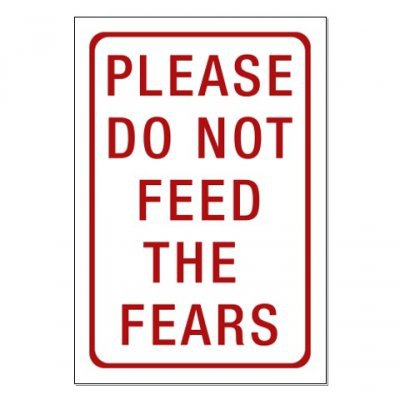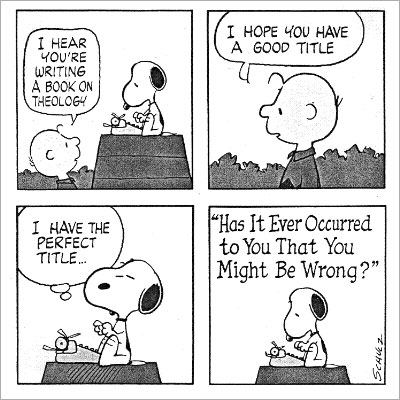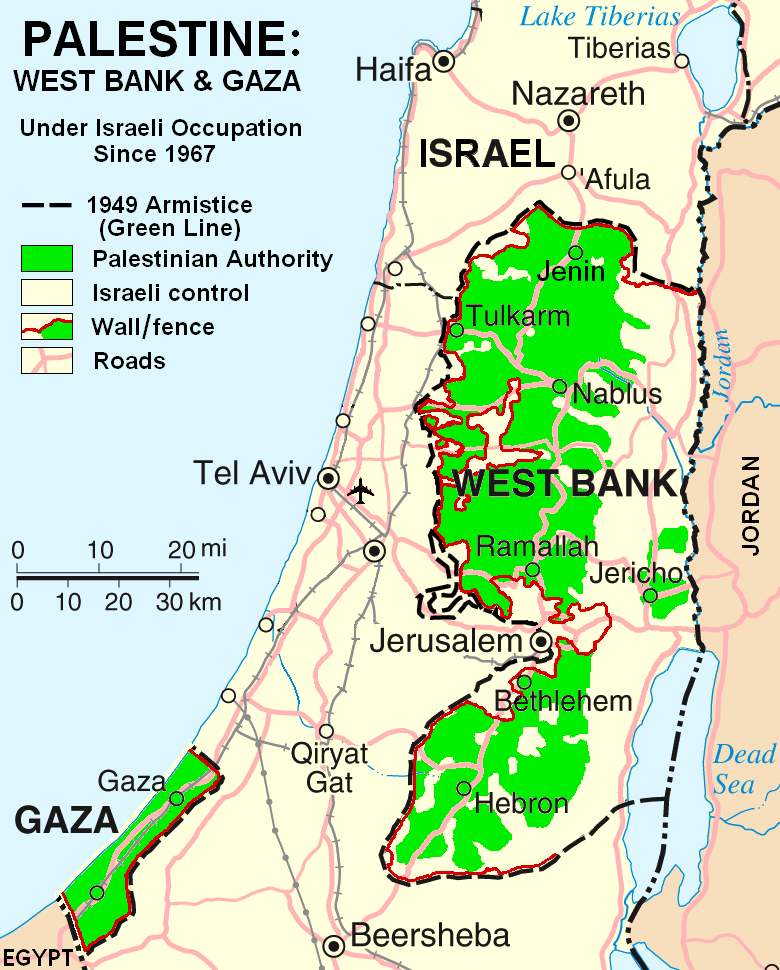====================
On the Eighth Sunday after Pentecost, August 3, 2014, this sermon was offered to the people of St. Paul’s Episcopal Church, Medina, Ohio, where Fr. Funston is rector.
(The lessons for the day were: Isaiah 55:1-5; Psalm 145: 8-9,15-22; Romans 9:1-5; and Matthew 14:13-21. These lessons can be read at The Lectionary Page.)
====================
 Today we are witnesses to one of the great and popular miracles of the gospel story, the feeding of the 5,000, which is actually the feeding of many more than that — notice the last few words of the gospel lesson text: “those who ate were about five thousand men, besides women and children.” (v. 21, emphasis added) Matthew gives little thought to the men’s wives or their uncounted, unnamed children.
Today we are witnesses to one of the great and popular miracles of the gospel story, the feeding of the 5,000, which is actually the feeding of many more than that — notice the last few words of the gospel lesson text: “those who ate were about five thousand men, besides women and children.” (v. 21, emphasis added) Matthew gives little thought to the men’s wives or their uncounted, unnamed children.
I would like to put us in context, both in time and space, so we have a fuller picture of what we have just witnessed. Matthew tells this story in the middle of chapter 14 of his gospel. In chapter 13 he related all those parables told by Jesus sitting in a boat off the shore of the Galilean lake at Capernaum, but at the end of the chapter he doesn’t leave Jesus sitting in the boat. Instead, he tells us that “when Jesus had finished these parables, he left that place [and] came to his hometown,” which would be Nazareth. (Mt 13:53-54) (You may recall that that didn’t go well: Jesus was heard to say that ” prophets are not without honor except in their own country” – v. 57)
Then, at the beginning of chapter 14 Matthew leaves Jesus altogether and tells us about the beheading of John the Baptist, which took place Sebastia, about 36 miles south of Nazareth. Matthew then brings us back to Jesus saying at the beginning of our lesson today that upon hearing the news of John’s execution, Jesus “withdrew in a boat to a deserted place.” (14:13)
Since Nazareth is not on any river or lake, I’m not sure how he did that! Here’s my difficulty: Nazareth is about 20 miles due west of the southern tip of the Sea of Galilee. In order to “withdraw in a boat” he’d have had to walk for a day or two first. It’s possible though.
Near by Nazareth, about four miles away, is the city of Sepphoris, believed to be the Virgin Mary’s hometown. In Jesus’ time it was a Roman city and may have been where craftsmen from Nazareth, like Joseph, worked. There probably was regular commerce between Sepphoris and the Roman city of Tiberias on Galilee; today there is a highway between them. Jesus may have walked to Tiberias and then gotten in a boat to make his way back to Capernaum (about 10 miles north along the shore).
Tradition tells us that the feeding of the 5,000 (or more) took place about three miles south of Capernaum at a place called Tabgha, or al-Tabigha in Arabic, a name derived from the Greek name Heptapegon meaning “seven springs”. As early as the Fourth Century there was a shrine at the identified location. A pilgrim woman from Spain named Egeria chronicled her travels in the Holy Land around the year 384 and, about Tabgha, wrote: “In the same place (not far from Capernaum) facing the Sea of Galilee is a well watered land in which lush grasses grow, with numerous trees and palms. Nearby are seven springs which provide abundant water. In this fruitful garden Jesus fed five thousand people with five loaves of bread and two fish.” (Egeria, of course, has thought only of the men, not their wives or their uncounted, unnamed children.)
In the floor of that shrine was a mosaic of loaves and fishes which has become famous throughout the Christian world. It is reproduced on your bulletin cover and is now preserved in the floor before the altar of the Church of the Multiplication, a Benedictine monastery church built at the site. The place is about a mile inland from the shore of Lake Galilee.
One last detail must be attended to and that is the question, “Could there really have been that many people there?” Possibly. That’s the best answer one can give. There are many towns and cities close enough to Tabgha that, if word got around that a miracle worker were there, people could have gotten there within a day or less of good solid walking, more quickly if they could ride a donkey or camel. Sepphoris had a population 40,000 or more, and Tiberias may have been of similar size; both were within a day’s journey. Capernaum probably had a population of 2,000 or more. The city of Chorazin, which Jesus (by the way) had cursed, is nearby. Migdala Nunia, the hometown of Mary Magdalene, is nearby. A large, m ixed crowd of Jews, Romans, and other Gentiles could easily have gathered. Matthew may be exaggerating, but even if he has increased the number of men tenfold, we are still witnessing something wonderful. Jesus is able to feed a whole lot more people than he ought with two fish and a few loaves of bread.
So that’s when and where we are as we witness this scene of Jesus providing lunch for an unbelievably huge number of people. We are on a hillside a mile from the Sea of Galilee where Jesus has gone in an attempt to get away by himself. He has just recently had a negative experience in Nazareth; he has just heard about the execution of his cousin John; he has tried to get away from it all, but the people have followed him and now find themselves with nothing to eat. And so they have turned to Jesus’ disciples, to the Twelve (who seem also to have followed him) and asked them for food. And the Twelve are at loss about what to do. They have taken stock and they simply do not believe that they can feed all these men, to say nothing of the women and the uncounted, unnamed children.
So they have a very reasonable suggestion for Jesus: “Send them away. Tell them to go back where they came from, or if that is too far away then to one of the nearer towns, and buy themselves something to eat. We cannot feed all these men and their women and their unnamed, uncounted children.”
Send them away! We do not have enough to share with these children who are fleeing drug wars and violence in Central America and illegally crossing our border and . . . .
O, wait . . . I’m mixing up my stories, sorry. This isn’t the Mexican border. This is the Holy Land. Right . . . .
Send them away! We do not have enough to share with these Palestinian children with their demands for civil liberty and a country of their own and . . . .
O, darn. I’ve done it again, mixed up my stories. This isn’t Gaza; this is the Galilee. Right . . . .
But the stories are easy to mix up. Unnamed people in need, unnamed children in need, and the response at the Mexican border is the response in Gaza is the response on that hillside at Tabgha. Send them away! Get rid of them! And whatever you do don’t count the children, don’t name the children, don’t even think of them as children.
Think of them as “law breakers.” Think of them as “illegal immigrants.” Think of them as “migrant hispanics.” And send them away. Get rid of them.
A few days ago, a major news organization quoted a North Carolina politician as saying (and, as God is my witness, I am not making this up): “To me, they’re breaking the law when they come here. If we can’t turn them back, I think if we pop a couple of them off and leave the corpses laying on the border, maybe they’ll see that we’re serious about stopping immigration.” (Raw Story)
Send them away! Get rid of them! And whatever you do don’t count them, don’t name them, don’t even think of them as children.
A few days after the current fighting in and around Gaza started a U.N. school was bombed — Hamas claimed it was an Israeli shell; Israel claimed it was an errant Hamas rocket; but to the seventeen children who died that was really irrelevant. The numbers of Palestinian dead began to rise and a disproportionate number of the dead every day are kids. By July 23, over 600 Gazans had died, 150 of them children. On that day, international aid agencies were reporting that “a child had been killed in Gaza on average every hour for the preceding two days, and more than 70,000 children had been forced to flee their homes.” (The Guardian)
That week, the Israeli human rights organization B’Tselem offered for radio broadcast a public service advertisement listing the names of some of the children. The Israeli Broadcasting Authority banned the ad saying its content was “politically controversial.” B’Tselem appealed and in its appeal said: “Is it controversial that the children [aren’t] alive? That they’re children? That those are their names? These are facts that we wish to bring to the public’s knowledge.” Its appeal was denied and the names of the children have never been published in Israel.
Whatever you do don’t count the children, don’t name the children, don’t even think of them as children. Think of them as “collateral damage.” Think of them as “Hamas sympathizers.” Think of them as “dirty Palestinians.” But send them away. Get rid of them.
On learning that the advertisement had been banned, the respected British children’s author Michael Rosen wrote a poem. Rosen, for two years, was British Children’s Laureate and has written more than 140 books for children. He is, incidentally, an ethnic Jew. This is his poetic response to the Broadcasting Authority’s ban:
Don’t mention the children.
Don’t name the dead children.
The people must not know the names
of the dead children.
The names of the children must be hidden.
The children must be nameless.
The children must leave this world . . .
having no names.
No one must know the names of
the dead children.
No one must say the names of the
dead children.
No one must even think that the children
have names.
People must understand that it would be dangerous
to know the names of the children.
The people must be protected from
knowing the names of the children.
The names of the children could spread
like wildfire.
The people would not be safe if they knew
the names of the children.
Don’t name the dead children.
Don’t remember the dead children.
Don’t think of the dead children.
Don’t say: ‘dead children’.
(Don’t Name the Dead Children)
“Send them away,” said the Twelve, “Get rid of them.” Jesus answer took them by surprise: “You feed them,” he said. And he proceeded to show them how they could, to prove to them that with whatever resources they had, they could care for those 5,000 men and their wives and their uncounted, unnamed children.
 About a mile away from the spot where that happened, on the beach of the Sea of Galilee is another church. It is called by two names. One is the Church of the Primacy of Peter; the other is Mensa Domini, the Lord’s Table. It marks the place where, after his Resurrection, the Lord appeared to his disciples and cooked for them a breakfast of broiled fish. As they ate, Jesus asked Peter, “Simon, son of John, do you love me?” Peter
About a mile away from the spot where that happened, on the beach of the Sea of Galilee is another church. It is called by two names. One is the Church of the Primacy of Peter; the other is Mensa Domini, the Lord’s Table. It marks the place where, after his Resurrection, the Lord appeared to his disciples and cooked for them a breakfast of broiled fish. As they ate, Jesus asked Peter, “Simon, son of John, do you love me?” Peter
said to him, “Yes, Lord; you know that I love you.” Jesus said to him, “Feed my lambs.” A second time he said to him, “Simon son of John, do you love me?” He said to him, “Yes, Lord; you know that I love you.” Jesus said to him, “Tend my sheep.” He said to him the third time, “Simon son of John, do you love me?” Peter felt hurt because he said to him the third time, “Do you love me?” And he said to him, “Lord, you know everything; you know that I love you.” Jesus said to him, “Feed my sheep.” (Jn 21:15-17)
On the Mexican border, in the person of our brothers and sisters who work in Episcopal Border Ministry or Episcopal Migration Ministry, we meet those refugee children fleeing violence and death in Central America . . . In Gaza, in the person of our sisters and brothers of the Episcopal Diocese of Jerusalem who work in the hospitals and clinics our own Good Friday offerings support, we meet the Palestinian children facing bombs and rockets and death . . . And when we meet those uncounted and still in the media unnamed children, we are just like the Twelve standing on that hillside at Tabgha looking at those 5,000 men and their wives and their unnamed, uncounted children and wondering, “How are we going to deal with this?” Some of us will want to say “Send them away we can’t handle this,” but Jesus says to us as he said to the Twelve, “Feed them.”
Jesus asks us what he asked Simon, son of John, on that beach, “Do you love me?” And if our answer is “Yes” he will name those children: he will name them “my lambs,” and what he said to Peter he will say to us, “Feed my lambs.”
====================
A request to my readers: I’m trying to build the readership of this blog and I’d very much appreciate your help in doing so. If you find something here that is of value, please share it with others. If you are on Facebook, “like” the posts on your page so others can see them. If you are following me on Twitter, please “retweet” the notices of these meditations. If you have a blog of your own, please include mine in your links (a favor I will gladly reciprocate). Many thanks!
====================
Father Funston is the rector of St. Paul’s Episcopal Church, Medina, Ohio.




 Truth, United States Senator Hiram Johnson observed in 1917, is the first casualty of war. When war becomes nearly universal is truth in danger of being fully obliterated? I don’t think so; I think truth will ultimately survive and prevail. My faith is that the Truth will no doubt prevail, but for the moment, I am speaking neither of grand philosophical concepts nor of the One who made the audacious claim, “I am the Truth.” (Jn 14:6) Rather, I speak simply of factual accuracy and of the intellectual integrity of those who communicate; that truth is suffering some mighty hurtful body blows at present.
Truth, United States Senator Hiram Johnson observed in 1917, is the first casualty of war. When war becomes nearly universal is truth in danger of being fully obliterated? I don’t think so; I think truth will ultimately survive and prevail. My faith is that the Truth will no doubt prevail, but for the moment, I am speaking neither of grand philosophical concepts nor of the One who made the audacious claim, “I am the Truth.” (Jn 14:6) Rather, I speak simply of factual accuracy and of the intellectual integrity of those who communicate; that truth is suffering some mighty hurtful body blows at present. Shechem was known as Sychar in Jesus’ time. Near that land that Abraham had bought for use as a tomb, just a short walk south from the traditional location of Joseph’s tomb, is a well that belonged to Jacob. At that well, Jesus stopped to ask a Samaritan woman for a drink; part of the story of that meeting and Jesus’ conversation with the woman (the longest of all the conversations recorded in the Gospels) is today’s Gospel text (John 4:27-42).
Shechem was known as Sychar in Jesus’ time. Near that land that Abraham had bought for use as a tomb, just a short walk south from the traditional location of Joseph’s tomb, is a well that belonged to Jacob. At that well, Jesus stopped to ask a Samaritan woman for a drink; part of the story of that meeting and Jesus’ conversation with the woman (the longest of all the conversations recorded in the Gospels) is today’s Gospel text (John 4:27-42).  The second tomb is that of Fr. Justinus, the priest who took over the church from St. Philoumenos and continued his work of restoration. An accomplished artist, Fr. Justinus wrote all of the icons which now decorate the nave, sanctuary, and crypt, including an icon of the martyrdom of St. Philoumenos. Fr. Justinus’s tomb is empty because he is still alive. He built his tomb himself and it is placed just outside the front door of the church; he walks past it everyday coming from his residence in the neighboring monastery to the church. It is a daily reminder of his (and our) mortality and of the dangers he (and many) face in the on-going violence or threat of violence that characterizes the Holy Land today.
The second tomb is that of Fr. Justinus, the priest who took over the church from St. Philoumenos and continued his work of restoration. An accomplished artist, Fr. Justinus wrote all of the icons which now decorate the nave, sanctuary, and crypt, including an icon of the martyrdom of St. Philoumenos. Fr. Justinus’s tomb is empty because he is still alive. He built his tomb himself and it is placed just outside the front door of the church; he walks past it everyday coming from his residence in the neighboring monastery to the church. It is a daily reminder of his (and our) mortality and of the dangers he (and many) face in the on-going violence or threat of violence that characterizes the Holy Land today. “In the tragedies in Iraq, Western Africa and Gaza, the waters of chaos are overwhelming us. My personal response right now is to keep my eyes on our Lord. My prayers ascend for all. Save us Lord.”
“In the tragedies in Iraq, Western Africa and Gaza, the waters of chaos are overwhelming us. My personal response right now is to keep my eyes on our Lord. My prayers ascend for all. Save us Lord.” Today we are witnesses to one of the great and popular miracles of the gospel story, the feeding of the 5,000, which is actually the feeding of many more than that — notice the last few words of the gospel lesson text: “those who ate were about five thousand men, besides women and children.” (v. 21, emphasis added) Matthew gives little thought to the men’s wives or their uncounted, unnamed children.
Today we are witnesses to one of the great and popular miracles of the gospel story, the feeding of the 5,000, which is actually the feeding of many more than that — notice the last few words of the gospel lesson text: “those who ate were about five thousand men, besides women and children.” (v. 21, emphasis added) Matthew gives little thought to the men’s wives or their uncounted, unnamed children. About a mile away from the spot where that happened, on the beach of the Sea of Galilee is another church. It is called by two names. One is the Church of the Primacy of Peter; the other is Mensa Domini, the Lord’s Table. It marks the place where, after his Resurrection, the Lord appeared to his disciples and cooked for them a breakfast of broiled fish. As they ate, Jesus asked Peter, “Simon, son of John, do you love me?” Peter
About a mile away from the spot where that happened, on the beach of the Sea of Galilee is another church. It is called by two names. One is the Church of the Primacy of Peter; the other is Mensa Domini, the Lord’s Table. It marks the place where, after his Resurrection, the Lord appeared to his disciples and cooked for them a breakfast of broiled fish. As they ate, Jesus asked Peter, “Simon, son of John, do you love me?” Peter I don’t know what to do about Israel and Palestine. Apparently no one knows what to do about Israel and Palestine. There is so much bitterness and emotion on both sides and from all quarters that no one can even talk about Israel and Palestine.
I don’t know what to do about Israel and Palestine. Apparently no one knows what to do about Israel and Palestine. There is so much bitterness and emotion on both sides and from all quarters that no one can even talk about Israel and Palestine.  For the past several days, the Daily Office Lectionary has required us to read sections of the Book of Joshua detailing the conquest of the land “from the Jordan to the Great Sea in the west.” I have dutifully read those lessons every day. I have been deeply troubled by them and by the suggestion (which I have seen some make on Facebook and other online sources) that the “history” set out in the Book of Joshua demonstrates God’s approval of the conquest of “biblical Israel” by the modern state of Israel. I have avoided writing anything about these lessons in these daily reflections on this blog.
For the past several days, the Daily Office Lectionary has required us to read sections of the Book of Joshua detailing the conquest of the land “from the Jordan to the Great Sea in the west.” I have dutifully read those lessons every day. I have been deeply troubled by them and by the suggestion (which I have seen some make on Facebook and other online sources) that the “history” set out in the Book of Joshua demonstrates God’s approval of the conquest of “biblical Israel” by the modern state of Israel. I have avoided writing anything about these lessons in these daily reflections on this blog.

